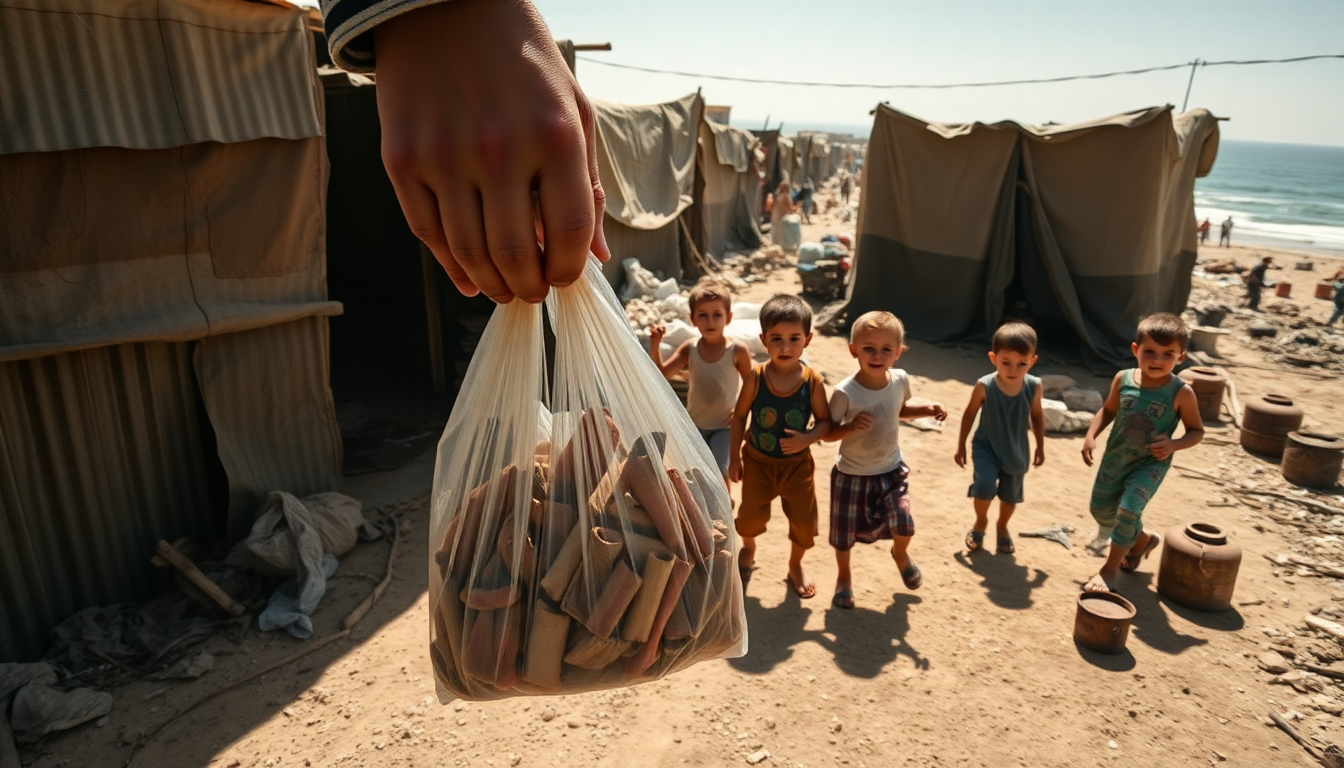Table of Contents
The ongoing conflict in Gaza has created unimaginable hardships for families like Fadi and Abeer Sobh. Displaced multiple times due to the violence, they now find themselves in a coastal camp near Gaza City, where their situation offers little comfort.
Imagine having to navigate daily struggles for basic necessities like food and clean water, all while caring for six children who face the constant threat of starvation and suffering.
Agricultural and Economic Instability
The Sobh family, along with many others in the region, is caught in a relentless cycle of deprivation made worse by the war.
Fadi, a street vendor, describes the unbearable heat inside their tent during the summer months. The lack of clean water forces Abeer to collect seawater, a stark reminder of the dire conditions they endure. Their children, often forced to bathe in saltwater, bear the brunt of this discomfort, a reality that is all too common in their lives.
To feed her youngest daughter, nine-month-old Hala, Abeer has to make do with a meager supply of lentils mixed with water, highlighting the scarcity of nutritious food. “One day feels like one hundred days,” she says, capturing the oppressive weight of their circumstances.
The family often tries to secure food from a nearby soup kitchen, but Fadi recounts the disappointment of waiting all day only to return home empty-handed. This constant hunger doesn’t just affect their physical health; it takes a toll on their emotional well-being, straining family dynamics.
The Struggle for Survival
Abeer’s quest for food has her scrambling to aid trucks at the Zikim crossing, where fierce competition makes her struggle even harder. Desperate men jostle for supplies, amplifying her own fight to provide for her children.
When she is unsuccessful, pleading for help from others becomes a heartbreaking routine. “You survived death thanks to God, please give me anything,” she implores, a chilling reflection of the desperation that now defines her life.
The children are not spared from the effects of heat and hunger; their parents encourage them to sleep through the day’s hottest hours to conserve energy. As evening falls, the family ventures out. Some days, Abeer sends her kids to neighbors, while other times they sift through the debris of Gaza’s streets, searching for anything that could serve as cooking fuel. The relentless challenges they face are compounded by a conflict that shows no signs of abating.
A Reflection on Despair
For the Sobh family, the prospect of a meal often feels like a distant dream. On the rare occasions when Abeer manages to gather enough resources, she prepares a thin lentil soup, but more often than not, they go to bed hungry. This cycle of uncertainty and deprivation has taken a severe toll on Abeer’s health and spirit. Feeling increasingly weak and dizzy, she confesses, “I am tired. I am no longer able.” The weight of her struggles leads her to contemplate the unthinkable: “If the war goes on, I am thinking of taking my life. I no longer have any strength or power.” Her heartbreaking words resonate with the broader plight of those caught in the crossfire of conflict, underscoring the urgent need for humanitarian assistance and a return to peace.





